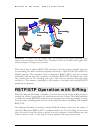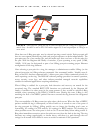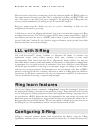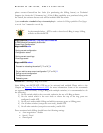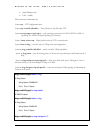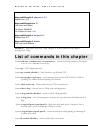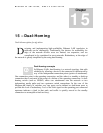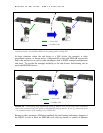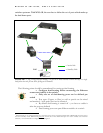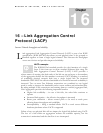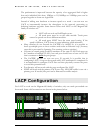
MAGNUM 6K SWITCHES, MNS-6K USER GUIDE
Chapter
15
15 – Dual-Homing
Fault tolerance options for edge devices
esigning and implementing high-availability Ethernet LAN topologies in
networks can be challenging. Traditionally, the choices for redundancy for
edge of the network devices were too limited, too expensive, and too
complicated to be considered in most networks. Redundancy at the edge of
the network is greatly simplified by the using dual-homing.
D
.
D
In
re
ual-Homing concepts
Ethernet LANs, dual-homing is a network topology that adds
liability by allowing a device to be connected to the network by
way of two independent connection points (points of attachment).
One connection point is the operating connection, and the other is a standby or back-up
connection that is activated in the event of a failure of the operating connection. A dual-
homing switch (such as EDS42) offers two attachments into the network or two
independent media paths and two upstream switch connections. In the case of the
Magnum 6K family of switches, any two ports can be defined as dual-home ports to
provide this level of redundancy. Loss of the Link signal on the operating port connected
upstream indicates a fault in that path, and traffic is quickly moved to the standby
connection to accomplish a fault recovery.
j
187



